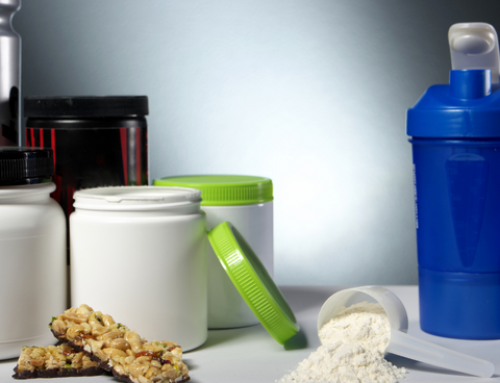Do's and Don'ts of Dietary Supplements
As a sports dietitian, I’m always getting asked about dietary supplements. Questions like “are they necessary?” and “‘which ones are safe?” are frequently thrown around in my office.
Unlike food, which is strictly regulated by the government, supplements are not subject to FDA approval. So there is no real accounting for the purity, safety or effectiveness of your selection. The NCAA, NFL and MLB ban many supplements, so don’t derail your athletic career with an accidental positive test.
You strive to be an educated consumer when shopping for food, so why not do the same with supplements? Read the labels. All supplements should come with a facts label and a list of ingredients. Make sure you understand what the ingredients will do to your body.
With planning and diet analysis, it is possible to meet all of your nutrient requirements from food. If you are considering a supplement, it would be beneficial to first do micro-nutrient testing to learn what your particular deficiencies are. Dietary supplements are useful for properly treating severe deficiencies.
If you’re interested in using supplements to meet your macro- or micro-nutrient needs, check trusted resources such as:
Common deficiencies in athletes include calcium, iron, vitamin E and potassium. Here are what each one does for your body and some sources of them.
Calcium. Aids in strengthening muscles and bones, and plays a role in burning fat as fuel. Adequate calcium stores can be hard to maintain as you age. Plus, if you’re lactose intolerant, taking in the recommended 1300 mg/day requires extra attention. Dairy is the most common food source, but calcium is also found in fortified orange juice, leafy greens and black-eyed peas.
Iron. Helps deliver oxygen to cells for energy production and brain function. Iron is often deficient in female athletes, leading to a condition called anemia. Iron can be found in certain cereals such as Total and Raisin Bran, as well as in red meat, nuts and seeds. Men should aim for 10 mg/day, females 15 mg/day. Iron absorption is aided by vitamin C.
Vitamin E. A key nutrient for recovery, Vitamin E decreases inflammation, reduces muscle soreness and protects against cell damage, helping the body recover from intense training. It is often deficient in athletes who eat highly processed diets. Vitamin E is commonly found in seeds, nuts, flax and vegetable oils.
Potassium. This mineral helps maintain water balance, preventing dehydration and allowing muscles to contract. Common sources of potassium include bananas, potatoes and avocados.
Do you have any questions about supplements? Ask them in the Comments field below. You can also find more info in STACK’s Dietary Supplement Guide.
RECOMMENDED FOR YOU
Do's and Don'ts of Dietary Supplements
As a sports dietitian, I’m always getting asked about dietary supplements. Questions like “are they necessary?” and “‘which ones are safe?” are frequently thrown around in my office.
Unlike food, which is strictly regulated by the government, supplements are not subject to FDA approval. So there is no real accounting for the purity, safety or effectiveness of your selection. The NCAA, NFL and MLB ban many supplements, so don’t derail your athletic career with an accidental positive test.
You strive to be an educated consumer when shopping for food, so why not do the same with supplements? Read the labels. All supplements should come with a facts label and a list of ingredients. Make sure you understand what the ingredients will do to your body.
With planning and diet analysis, it is possible to meet all of your nutrient requirements from food. If you are considering a supplement, it would be beneficial to first do micro-nutrient testing to learn what your particular deficiencies are. Dietary supplements are useful for properly treating severe deficiencies.
If you’re interested in using supplements to meet your macro- or micro-nutrient needs, check trusted resources such as:
Common deficiencies in athletes include calcium, iron, vitamin E and potassium. Here are what each one does for your body and some sources of them.
Calcium. Aids in strengthening muscles and bones, and plays a role in burning fat as fuel. Adequate calcium stores can be hard to maintain as you age. Plus, if you’re lactose intolerant, taking in the recommended 1300 mg/day requires extra attention. Dairy is the most common food source, but calcium is also found in fortified orange juice, leafy greens and black-eyed peas.
Iron. Helps deliver oxygen to cells for energy production and brain function. Iron is often deficient in female athletes, leading to a condition called anemia. Iron can be found in certain cereals such as Total and Raisin Bran, as well as in red meat, nuts and seeds. Men should aim for 10 mg/day, females 15 mg/day. Iron absorption is aided by vitamin C.
Vitamin E. A key nutrient for recovery, Vitamin E decreases inflammation, reduces muscle soreness and protects against cell damage, helping the body recover from intense training. It is often deficient in athletes who eat highly processed diets. Vitamin E is commonly found in seeds, nuts, flax and vegetable oils.
Potassium. This mineral helps maintain water balance, preventing dehydration and allowing muscles to contract. Common sources of potassium include bananas, potatoes and avocados.
Do you have any questions about supplements? Ask them in the Comments field below. You can also find more info in STACK’s Dietary Supplement Guide.











